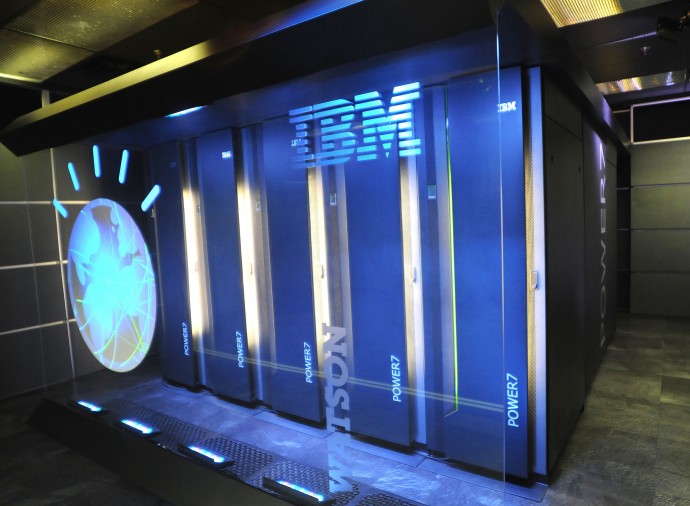IBM Watson diagnosed a rare form of leukemia in women.
Artificial intelligence turned out to be more efficient than doctors in diagnosing a disease.

IBM Watson 2012 Sample
In 2013, the IBM Watson computer entered commercial operation as a diagnostician. This was preceded by two years of study , during which Watson studied 605 thousand medical documents, a total of 2 million pages of text. Before the beginning of medical practice, the computer analyzed 25 thousand case histories and worked 14.7 thousand hours to fine-tune the algorithms.
Three years ago, IBM Watson was far superior to doctors in determining the optimal treatment after diagnosing a disease. For example, the accuracy of optimal treatment assignment after diagnosing lung cancer in US hospitals is 50%. That is, in half the cases, doctors recommend not the most ideal course of treatment and medications. So, IBM Watson's computer has an accuracy rate of optimal treatment assignment of 90%.
Since then, the computer knowledge base has been significantly replenished, so that the computer has become even more superior to humans in the accuracy of diagnosing certain types of cancer and prescribing treatment. An indicative case occurred in Japan . Doctors from the University of Tokyo Medical Institute tried to treat a woman suffering from leukemia, but the treatment was ineffective. Then they turned to IBM Watson for help in trying to find a more efficient solution. Computer diagnosis was unexpected. He determined that the woman actually suffers from another form of leukemia, and not from the one from which the doctors treated her.
')
IBM Watson made a diagnosis taking into account the patient's genetic data and her medical history. The computer compared these parameters with information from 20 million other case histories in its database. He diagnosed another form of leukemia and, accordingly, suggested a different treatment.
This example shows the great potential of using data mining and using artificial intelligence in diagnostics. In the future, it is possible that AI will be able not only to diagnose, but also to predict diseases based on individual genetic information, current medical indicators and the results of patient analyzes.
The work of a computer diagnostician will be greatly simplified if a global database of DNA samples of all citizens is created. When you go to a doctor, genetic information will be automatically taken into account when making a diagnosis. Of course, the creation of such a base causes well-founded concerns among privacy advocates. Therefore, the emergence of a universal computer "Dr. House" still remains in the distant future: for this to be overcome a number of barriers to government regulation and public opinion.
Source: https://habr.com/ru/post/372557/
All Articles